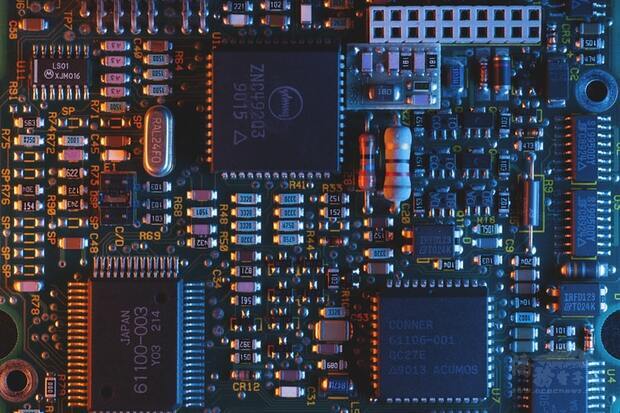Semiconductors were the «unsung heroes» of the pandemic era, described the World Trade Organization (WTO).
“Millions of us were fortunate enough to suddenly be able to work, study or receive medical care at home,” said the WTO, by way of preamble, to develop this short account, as part of its Trade Report 2021.
All those new laptops, smartphones, medical devices, and data servers needed chips.
People couldn’t travel, but open trade meant semiconductors could.
As a result, parents continued to work, children continued to receive education, and many were able to stay safe.
So semiconductors helped many people to be more resistant to the crisis.
Things could have been very different for the tiny chip.
About 10% of all semiconductors are sold to automakers, and some cars need more than 3,000 different chips.
Orders from car companies were sold out when the commuters disappeared.
But for that new stay-at-home demand, the semiconductor industry could have suffered the same bankruptcies, layoffs, and need for government assistance that hit so many others.
Semiconductors
The chips are manufactured all over the world.
Their “inputs”, too, often come from remote locations: the last chip to emerge is from a highly fragmented, global production process.
Some companies simply design semiconductors. Others just produce them. Some make the equipment for manufacturers. Others develop software for designers. Some companies package them. But every step is essential.
If your supply chain was not diversified and resilient, chip flows could easily come to a halt.
The industry was just at its peak in the face of the pandemic. Governments had suddenly discovered how to turn chips into weapons for other uses.
Beginning in 2019, the WTO added, the sector was caught in a dispute between Japan and the Republic of Korea, hit by tariffs from the US–China trade war and subject to export controls over cybersecurity concerns for the telecommunications sector.
Finally, and more than a year after the pandemic, the world was left without semiconductors. But even that had less to do with a vulnerable supply chain.
Shortage
The demand just grew too much, too fast. Car companies, once gone, returned to the chip market with large orders in hand … only to find an industry up and running.
Overcapacity is the opposite of shortage. It takes time, and tens of billions of dollars of investment, but semiconductor companies are building new plants, often with generous financial «help» from policy makers.
Unfortunately, governments have also been known to show too much love for tokens. Historically, the semiconductor industry has known that booms, busts, and trade weren’t open.
Chips were a major battlefield in the trade war between the United States and Japan of the 1980s.
In the early 2000s, governments often imposed business solutions, segmenting markets.
Supply chain
Always following the WTO description, the relative political calm of the last 15 years may come to be known as the industry’s period of maximum resistance.
Today’s semiconductor supply chains also go through a Who’s Who of commercial protagonists.
Indeed, this interdependence may have helped keep the peace during a period of increasing geopolitical tensions.
But changing the geography of the supply chain to reduce that interdependence could lead to new vulnerabilities.
Winter storms, droughts, floods and fires happen. Pandemics happen. Don’t forget the pace of technological change. (There are few other industries in which a government bet on a company represents a greater risk.)
“The resilience of the semiconductor industry and the supply chain made it possible for millions of us to better handle the crises triggered by Covid-19. Next time could be different”, concluded the WTO.
![]()

